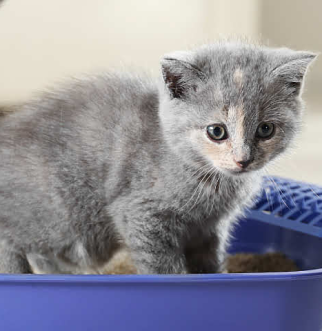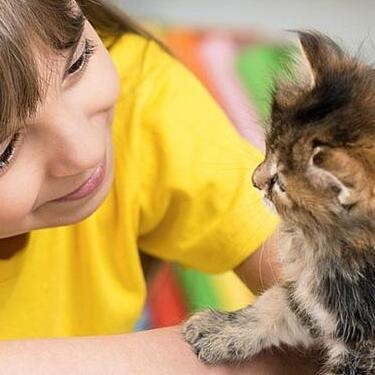
-
Find the right food for your pet
Take this quiz to see which food may be the best for your furry friend.
Find the right food for your pet
Take this quiz to see which food may be the best for your furry friend.
Featured products
 Adult Healthy Cuisine Roasted Chicken, Carrots & Spinach Stew Dog Food
Adult Healthy Cuisine Roasted Chicken, Carrots & Spinach Stew Dog FoodDelicious roasted chicken paired with tender vegetables in a succulent stew
Shop Now Adult 7+ Perfect Digestion Chicken, Whole Oats & Brown Rice Recipe Dog Food
Adult 7+ Perfect Digestion Chicken, Whole Oats & Brown Rice Recipe Dog FoodScience Diet's breakthrough nutrition supports ultimate digestive well-being & healthy microbiome for dogs age 7+
Shop Now Small & Mini Savory Stew with Chicken & Vegetables Dog Food
Small & Mini Savory Stew with Chicken & Vegetables Dog FoodA delicious complement to the nutrition of Science Diet Small & Mini 7+ dog food
Shop NowFeatured products
 Adult 7+ Senior Vitality Chicken & Vegetable Stew Cat Food
Adult 7+ Senior Vitality Chicken & Vegetable Stew Cat FoodImproves Everyday Ability to Get Up & Go
Shop Now Adult Savory Entrée Can Variety Pack Cat Food
Adult Savory Entrée Can Variety Pack Cat FoodPrecisely balanced nutrition with the delicious taste of savory minced chicken to help fuel the energy needs of cats during the prime of their life
Shop Now Adult 7+ Tender Tuna Dinner Cat Food
Adult 7+ Tender Tuna Dinner Cat FoodWith delicious chunks in a decadent gravy
Shop Now -
Dog
- Dog Tips & Articles
-
Health Category
- Weight
- Food & Environmental Sensitivities
- Urinary
- Digestive
- Joint
- Kidney
-
Life Stage
- Puppy Nutrition
- Adult Nutrition
- Senior Nutrition
Cat
- Cat Tips & Articles
-
Health Category
- Weight
- Skin & Food Sensitivities
- Urinary
- Digestive
- Kidney
-
Life Stage
- Kitten Nutrition
- Adult Nutrition
Featured articles
 Why Are Dogs and Cats So Cute?
Why Are Dogs and Cats So Cute?If waggy puppy dog tails and furry kitten yawns make you swoon, you're not alone. Why are cats so cute? And, dogs too! Let's find out!
Read More Do Dogs and Cats have Belly Buttons?
Do Dogs and Cats have Belly Buttons?Learn whether cats & dogs have belly buttons like humans, what the function is, and if there are any health concerns associated with it.
Read More Does My Pet Hate Me?
Does My Pet Hate Me?Learn tips for bonding with your pet if you've ever thought, 'My dog doesn't like me, or 'Why do I have a standoffish cat?'
Read More -


Stage 1 kidney disease in cats is an important health issue to keep an eye on, no matter what your cat's age. With the proper treatment and nutrition, though, you can keep your kitty happy and manage her condition.
Kidney Disease
Simply stated, kidney disease (also called "renal failure") is the loss of function of the kidneys. It can be chronic (slow and long-term) or acute (sudden). The kidneys filter blood and create urine, so a kidney malfunction can result in a number of medical issues. According to the Cornell Feline Health Center at Cornell University College of Veterinary Medicine, cats with kidney disease "may experience a buildup of the waste products and other compounds in the bloodstream that are normally removed or regulated by the kidneys." This buildup of toxins in turn can create other medical problems, including high blood pressure or anemia (when combined with other factors).
Stage 1 is the first level of chronic kidney disease in cats or the earliest that the disease can be diagnosed. Researchers cannot say for sure why cats develop it, but other medical issues can lead to kidney disease, such as an infection, a virus, gum disease, and dehydration. Some cats can inherit the disease from their parents. Typically, older cats develop kidney disease, but younger cats can be affected, too.
Symptoms
As the Pet Health Network reports, 1 in 3 cats suffer from this disease, and unfortunately, it's not an easy illness to discover. "Most cats show no outward signs of kidney disease until the problem is very advanced. Even when they do, the first signals of kidney disease in cats are easy to miss, including subtle weight loss, urinating/peeing more often and drinking more water." Lethargy, or lack of energy, a decrease or loss of appetite or vomiting, are often strong indicators that something is amiss; therefore, monitor your pet very closely, and if you notice these changes or others, contact your veterinarian right away for an appointment, as the illness can progress quickly if not treated early.
Diagnosis and Treatment
When you bring your cat in for a checkup, she will undergo a variety of tests to determine if she has kidney disease.
Historically, in cats with chronic kidney disease (usually seniors), the vet specifically will look at the levels of two "biochemical byproducts," explains VCA Animal Hospital: blood urea nitrogen (BUN) and creatinine, together with the urine specific gravity (USpG). Another option is to do a protein:creatine test to measure proteinuria.
More recently, another test has been developed that allows vets to diagnose kidney disease, both chronic and acute, much earlier. IDEXX SDMA is a "renal biomarker specific to kidney function. SDMA has proven to be a more sensitive indicator than creatinine, enabling veterinarians to detect acute kidney injury and chronic kidney disease." This test has resulted in 2.4 times more pets being detected with early kidney disease than before. By getting your fur baby diagnosed earlier and more accurately, you can progress to the treatment stage sooner.
When caught in its early stages, especially stage 1, the disease is much easier to treat with meal plan changes. Your veterinarian may recommend a therapeutic pet food.


Tasty Tips
Nutrition
Nutrition is a key component of your pet's wellness, particularly for senior cats (which cats can start showing signs of aging as early as seven), when issues like kidney disease play a more prominent role. Accommodating the changing nutritional needs of your aging cat, such as choosing the right cat food, is vital to maintaining her health.
The mineral phosphorus, for example, is naturally found in protein-rich foods, like meats and fish, is found in pet food. However, as PetMD emphasizes, phosphorus levels must be monitored in a cat with chronic kidney disease. "Phosphorous is excreted from the body through urine, and when kidney function is impaired, phosphorous levels within the body begin to rise. The easiest way to keep blood phosphorous down is to restrict the amount that a cat [consumes in the diet]." The desired level of phosphorous intake depends on the level of your cat's kidney disease, which your vet will explain to you. Hill's takes this very seriously when it formulates its cat food to ensure that your cat is receiving the right nutrients in the right amounts to keep her happy and healthy. Ask your veterinarian if Prescription Diet cat food might be a good option for your cat.
Stage 1 kidney disease is not something that is easy to detect, but by being a vigilant and caring cat parent, you can help catch any potential harmful diseases to your cat early. Close monitoring, early intervention, and active treatment all go a long way to giving your cat a long, healthy life.


Christine O'Brien is a writer, mom, and long-time cat parent whose two Russian Blues rule the house. Her work also appears in Care.com, What to Expect, and Fit Pregnancy, where she writes about pets, pregnancy, and family life. Find and follow her on Instagram and Twitter @brovelliobrien.
Related products
Related articles

What is the best food for an overweight cat? Learn all about weight control food for cats, including what's in it and how it works.

Cats are naturally very clean and chances are your kitten will already have learned how to use the litter box from her mother before she comes to live with you.

How do you get a cat to lose weight? Learn all about cat foods for weight loss, including how to choose weight control cat food and exercise tips.

Discover how to train your cat, starting with very basic first steps that both reward good behavior and discourage the bad.

Put your cat on a diet without them knowing
Our low calorie formula helps you control your cat's weight. It's packed with high-quality protein for building lean muscles, and made with purposeful ingredients for a flavorful, nutritious meal. Clinically proven antioxidants, Vitamin C+E, help promote a healthy immune system.
Put your cat on a diet without them knowing
Our low calorie formula helps you control your cat's weight. It's packed with high-quality protein for building lean muscles, and made with purposeful ingredients for a flavorful, nutritious meal. Clinically proven antioxidants, Vitamin C+E, help promote a healthy immune system.

